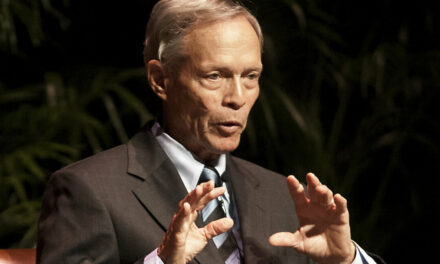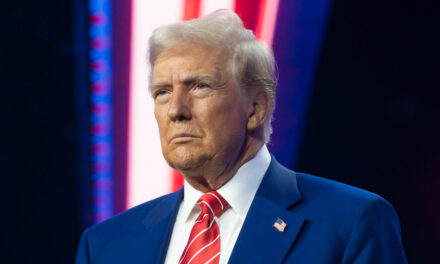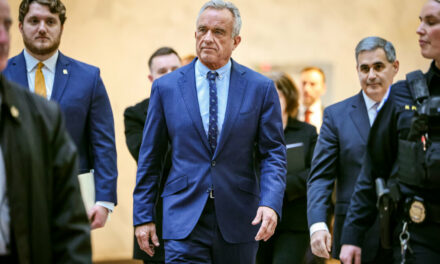We support our Publishers and Content Creators. You can view this story on their website by CLICKING HERE.
Judge Merchan gave Trump an unconditional discharge, which means that no penalties were imposed.
NEW YORK CITY—New York Supreme Court Justice Juan Merchan on Jan. 10 gave President-elect Donald Trump an unconditional discharge in his sentencing in the business records case.
It’s a largely symbolic sentence that means that Trump does not face any penalties beyond having a conviction entered in his legal record. Merchan declined to impose any term of imprisonment or fines. Instead, he chastised Trump for his conduct.
“It is the legal protections afforded to the office of the president of the United States that are extraordinary, not the occupant,” Merchan said as Trump listened during a virtual appearance.
The hearing occurred just 10 days before Trump’s scheduled inauguration on Jan. 20, at which time he will receive constitutional protection against additional lawsuits. For years, Trump has been dogged by legal battles, including the business records case over which Merchan presided, as well as three other criminal prosecutions.
During that time, he has publicly sparred with jurists and attorneys, alleging illegitimate, politically motivated lawfare. In Merchan’s court alone, Trump was held in contempt 10 times and faced multiple gag orders. A jury found Trump guilty in May on 34 felony counts of falsifying business records.
“Never before has this court been presented with such a unique and remarkable set of circumstances,” Merchan said during sentencing on Jan. 10. “
Merchan asserted that “Donald Trump the ordinary citizen, Donald Trump the criminal defendant” would not be entitled to the presidency’s protections. He said that office is the only one that shields Trump from the verdict’s seriousness.
He wished Trump “Godspeed” as he prepares for a second term in office before Merchan left the bench.
Trump also notably called the judge’s impartiality into question when he requested Merchan’s recusal, citing his daughter’s relationship with a Democratic group.
Trump had attempted to halt sentencing with multiple appeals to New York courts and the U.S. Supreme Court—each of which ultimately denied his requests. The case could nonetheless spawn future appeals and result in the conviction being overturned.
So far, Trump has raised numerous objections to the cases against him, and focused in particular on the argument that presidential immunity protected actions he took during his first term.
Those actions included an alleged attempt to cover up a payment to adult film actress Stephanie Clifford (known as Stormy Daniels). The purported hush money was the subject of Manhattan District Attorney Alvin Bragg’s prosecution.
When Merchan scheduled sentencing in a Jan. 3 order, he indicated that various concerns, including presidential immunity, disposed him against imposing a period of incarceration.
In December, Merchan rejected Trump’s argument that presidential immunity undermined the evidence Bragg used and that, because of that flaw, Merchan should throw out the case.
The New York judge said that Trump waited too long or failed to preserve objections to evidence. He ruled that information related to both preserved and unpreserved arguments did not receive protection under the doctrine of presidential immunity.
“This Court … finds that the evidence related to the preserved claims relate entirely to unofficial conduct and thus, receive no immunity protections,” Merchan wrote in his opinion. The judge ruled that the unpreserved claims likewise received no immunity protections.
The president-elect said the case itself is illegitimate, and an opinion written by Merchan “goes against our Constitution, and, if allowed to stand, would be the end of the Presidency as we know it.”
The Associated Press contributed to this report.

 Conservative
Conservative  Search
Search Trending
Trending Current News
Current News 







